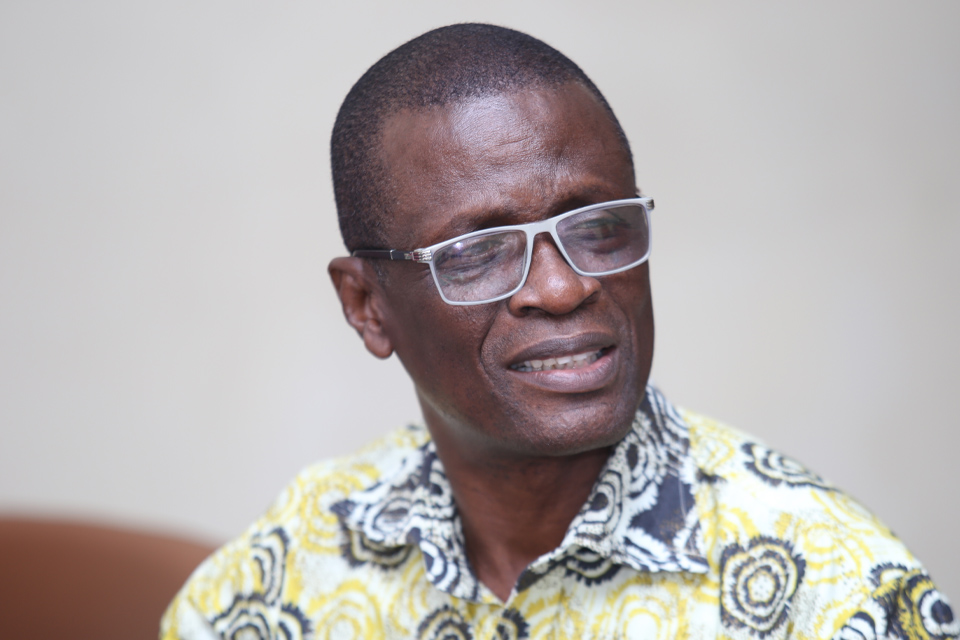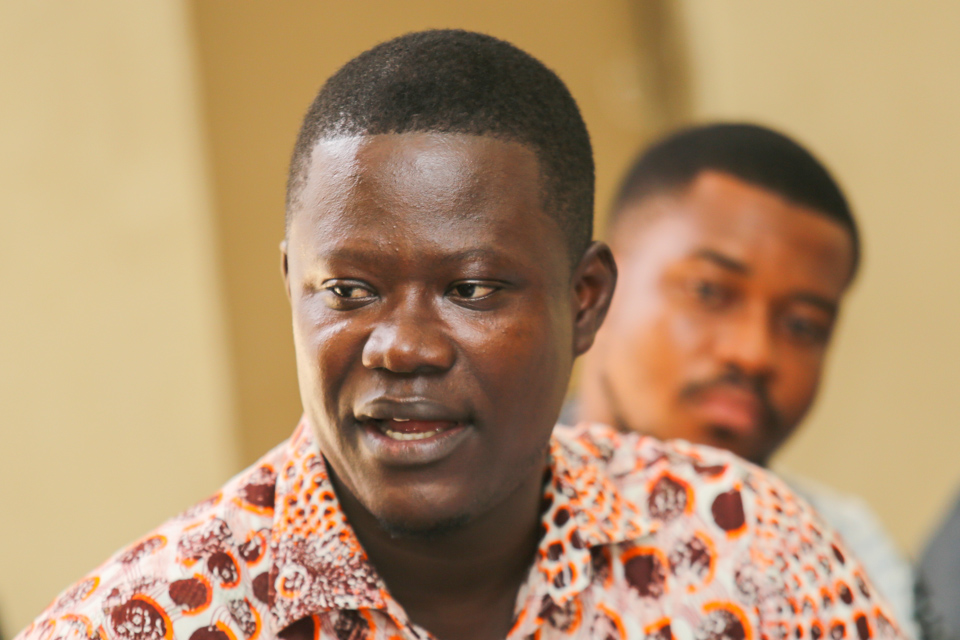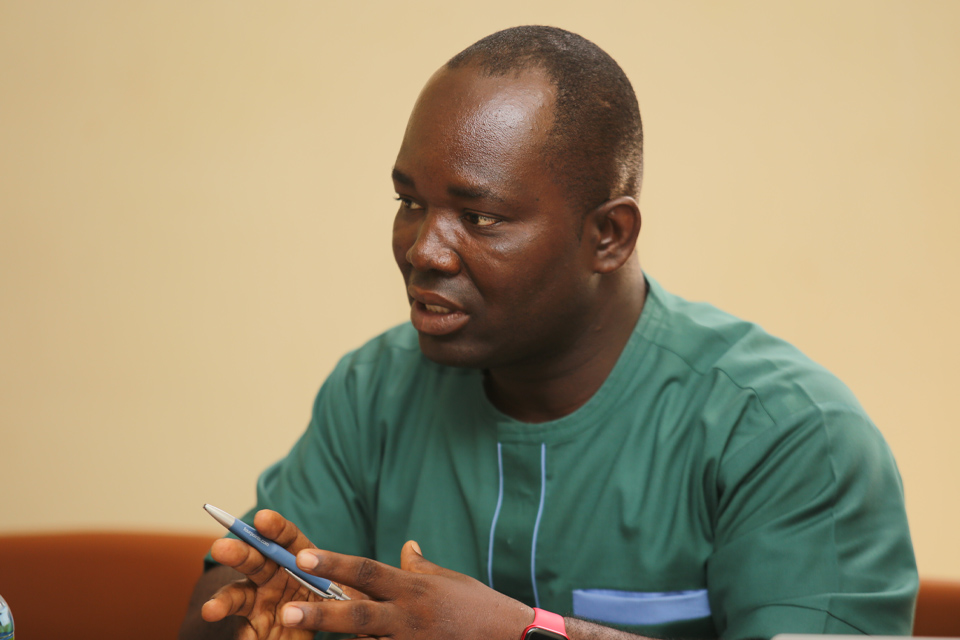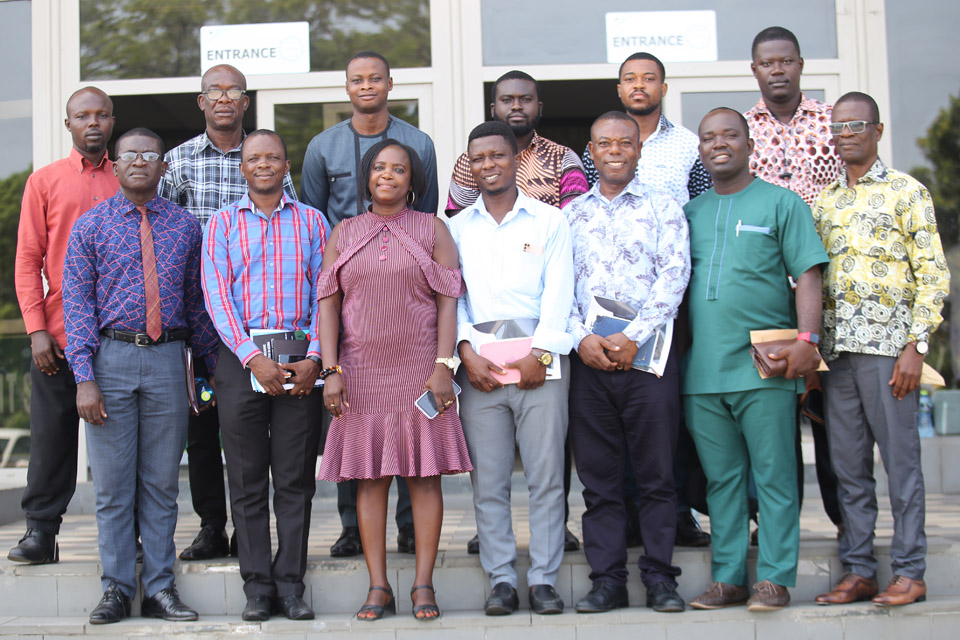SITUATE-2 Project Researchers at UEW Interact with Stakeholders

A team of researchers from the University of Education, Winneba (UEW) undertaking a project titled "Removing Barriers to a Disability-Inclusive Urban Transport System (Policies and Regulations) in Accra and Nairobi (SITUATE-2)" has held a project stakeholder meeting, the third in a series since the project commenced early this year.
The meeting, held at the Accra Metropolitan Assembly Conference Room in Accra, discussed strategies for removing barriers to the urban transport system in Accra, identified in SITUATE-1, to ensure an inclusive urban transport system in Accra and, by extension, Ghana.
A Professor of Special Education and research team member, Prof. Samuel Hayford, gave an account of the project's headway thus far.

"This is a continuation of something we started last year. A group of researchers had the opportunity to do a project about looking at how we could make our transport system in Accra, Ghana, inclusive enough for all citizens, particularly those with special needs or disabilities. Fortunately, we didn't do it alone in Ghana; we had our partners in Kenya who also participated in similar studies in Nairobi.
"When we finished and submitted the report, the sponsors felt something in it needed to be pursued, so they agreed for us to do a follow-up to SITUATE-1. SITUATE-1 was not accomplished in isolation, thinking about just academia; we had key stakeholders who contributed significantly towards accomplishing that task. We are looking at the second phase, which focuses mainly on dealing with the barriers in the transport spaces for people with disabilities. Whatever we build for those with disabilities eventually benefits us all," he remarked.
Prof. Hayford argued that by considering the transportation system and attempting to make it inclusive, it ultimately benefits everyone.

A lecturer at the Department of Geography Education, UEW, Dr. Prince Odame, noted that Ghana, one of many African nations that have ratified the United Nations (UN) Conventions on the Rights of Persons with Disabilities, enacted the Disability Act 715 to demonstrate its commitment to providing a national instrument to examine the needs of people with disabilities.
He said despite the diverse ways and many options for the disability community when travelling in the city of Accra, SITUATE-1 identified that the typical "trotro" services remained the most common and easily preferred option among the disability community owing to the many reasons that it's the cheapest option widely available and has a broader scope of coverage.
"Beyond the physicals, which were quite intriguing, we also realised that the level of communication and personal interaction between the transport operators and the disability community was also not one that we could describe as encouraging, with many instances of how transport operators had refused to allow wheelchair users to join their buses; transport operators have used their office as a conduit to actually abruptly change gravel routes without considering the plight of the visually impaired and other people.
"Also, there have been instances where transport operators have used unpleasant terminologies in describing and engaging with the disability community. It is in this regard that the disability community thought that further engagement and further proposed intervention would be necessary for us also to bridge the gap, knowing very well that at any point in time, anybody at this meeting can join the disability community," he noted.

The project lead, Prof. Enoch Sam, indicated that it was the duty of researchers to identify problems and offer remedies that would benefit everyone, especially the victims.
"Throughout the discussions, we saw this desire for change, which is what we want to focus on moving forward. As a team, we have earmarked several action plans we will want to undertake with your support and many of them we have discussed here. We would also like to measure the impact to see how feasible and workable the issues raised contribute to removing barriers to urban mobility, especially for persons with disabilities.
"We want to implement some of these interventions at the various terminals and transport corridors and see the impact. We want to lobby you to make them permanent, especially in the long term. We have a lot to do, and sustainability is of the essence. It shouldn't be a nine-day wonder; sustainability requires the efforts of all of us here," he emphasised.
The stakeholders and the project team members reflected on the issues raised in the findings of SITUATE-1 and suggested interventions that their organisations planned to implement. The main objective of the meeting was to develop a more realistic and helpful intervention that addresses the transportation needs of the disability community.
Other project members present at the meeting were the Vice-Dean of the Faculty of Social Science Education, Prof. (Mrs.) Esther Yeboah Danso-Wiredu and a lecturer at the Department of Geography Education, Dr. Adams Osman.









